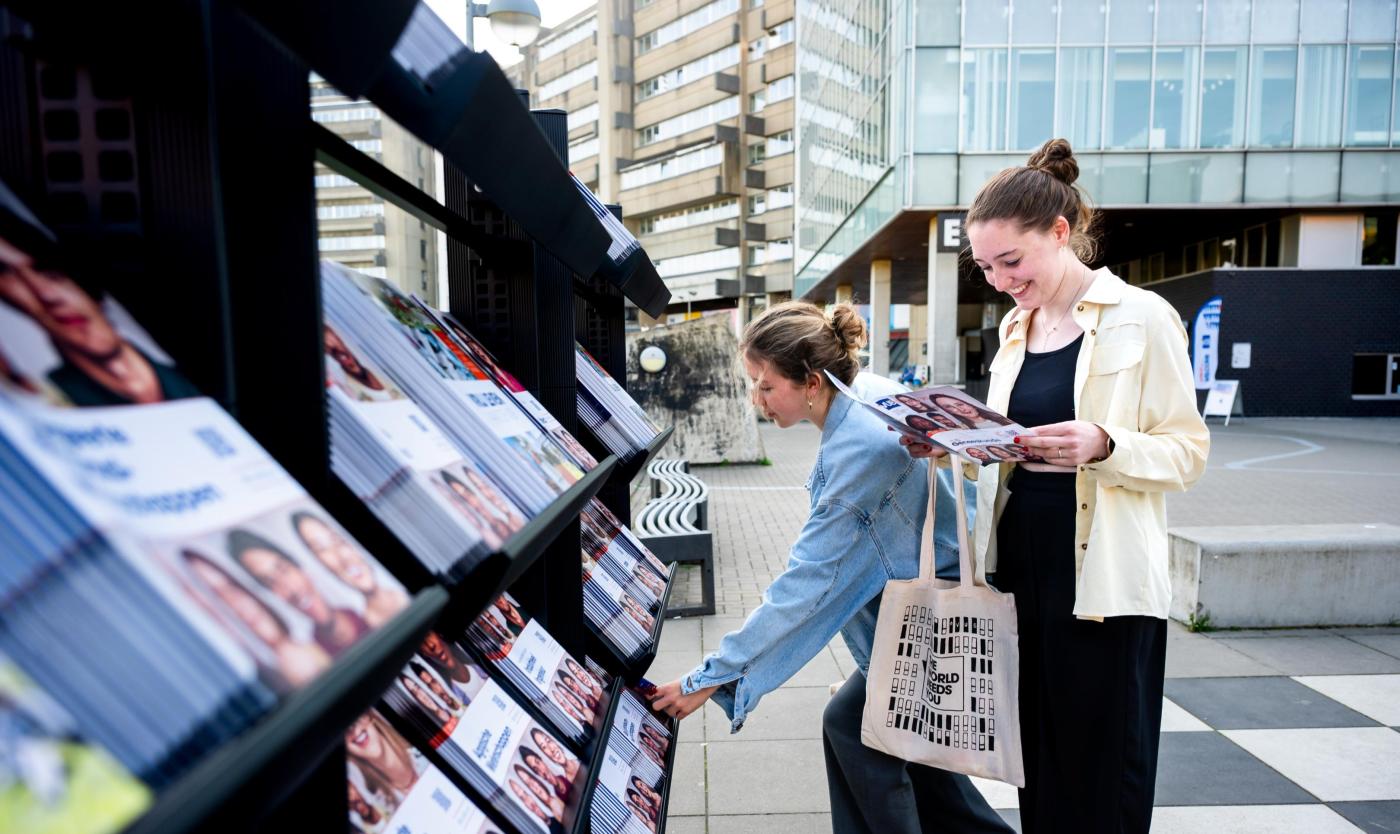
This inter-university programme maintains its own dedicated website: http://masterurbanstudies.eu. Check this website for more detailed information on the curriculum, teachers and administrative staff, admission requirements and fees, and how to apply. Please note the programme-specific application deadlines: for the 2025/26 intake, this is 7 February 2025 (all students) and 7 May 2025 (EU only).
What do you learn in the master's programme?
Providing a genuinely interdisciplinary perspective on urban studies, students pursue a core trajectory of shared courses while enjoying the flexibility to specialize through individual selection from an extensive range of electives. Our education combines theoretical courses with field observation, excursions and hands-on applied activities. The programme is designed to cultivate a cohort of adept urban researchers and professionals capable of effecting meaningful change within the European context and beyond.
Programme structure
The 120 ECTS curriculum combines the attractiveness of a flexible, modular and interdisciplinary programme that allows you to focus on your own interests within the domain of urban studies, with a common core of compulsory courses to ensure that you develop the necessary urban skills and competences.
Year 1 is largely dedicated to the core set of compulsory courses (53 ECTS), introducing you to the field of interdisciplinary urban studies. This includes thematic and theoretical courses such as Urban Political Economy, Global Urban Studies, Urban History or Greening the City, a public lecture series (StadsSalonsUrbains) with a yearly changing line-up of international speakers, and a dedicated course on Brussels (Brussels, Reading the City). The core also offers hands-on methods and skills training in urban research with students working in small groups and interacting with public or private organizations (Project Seminar in Applied Urban Research). By organising various site visits in and around Brussels and excursions to cities in Europe, we benefit from our location in the centre of Europe. We also support you in developing your master's thesis (Research Design in Urban Studies) and there is limited space to choose a number of elective courses.
Following one year of core training in urban studies, in year 2 you can design your individual curriculum and specialize within subdomains of this exciting and sprawling field. As an interdisciplinary but also interuniversity and interdepartmental programme, we are able to offer a substantial list of elective courses from a variety of disciplines: from architecture to geography, from spatial planning to history and archaeology, from criminology to mobility studies, from urban design to migration studies, from socio-environmental studies to sociology and demography. Year 2 is also dedicated to researching for and writing your 30 ECTS master's thesis. In addition, students can choose to do an internship (15 ECTS) or go for a semester study exchange (21-30 ECTS) at one of our partner universities across Europe.
Find out more about this programme
The strengths of our Urban Studies programme
- A strong programme, thanks to the integration of analytical skills typical for the (social) sciences and the more design-oriented skills of planning and architecture.
- As a unique city in the heart of Europe, there is nowhere better than Brussels to explore the field of urban studies.
- A substantial offer of elective courses incorporating all kinds of disciplines allows you to pursue your particular interests.
- A strong and international cohort of fellow students coming from different backgrounds.
After graduation
During your MSc in Urban Studies, you will be trained to analyse, understand and propose solutions for urban problems (planning, project management, scenario research), work in a multidisciplinary team and adopt a critical attitude. This will open opportunities for you to work on urban problems in both the private and public sectors. There is no general profile of urban studies graduates, as the wide variety of geographic and disciplinary backgrounds, skill sets, and personalities leads to many different paths. Job profiles after graduation range from architects and planners to communications specialists and project managers, consultants and analysts, researchers and teachers, and activists and community organizers. Our graduates find or create jobs both in the public and private sectors, from government administrations to companies to nonprofits and NGOs. Various graduates continue their studies after the MSc in Urban Studies, either by pursuing doctoral degrees or another master’s degree to further develop specific skills.
Discover the many opportunities
Is this programme for you?

A better idea of the programme?
Curious to find out if this programme is really the right fit for you? Take part in our (online) study choice activities. Discover the campus on a guided tour, ask our professors questions during an online info session, read our alumni testimonials or experience the atmosphere yourself at an open day.